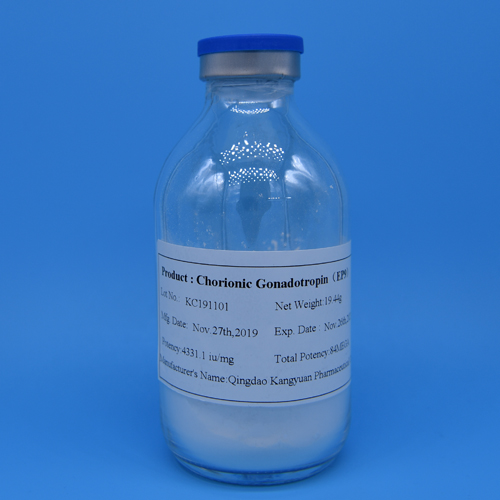Human chorionic gonadotropin (HCG) is a hormone produced during early pregnancy. It plays a crucial role in maintaining pregnancy and has various other applications in medicine and beyond. This article will explore the multifaceted nature of HCG, including its functions, medical applications, and uses beyond pregnancy.
Pregnancy Support: During pregnancy, the placenta produces HCG, which assists in nourishing and maintaining the uterine lining. HCG is a vital indicator of pregnancy and is often used in pregnancy tests. It ensures the production of estrogen and progesterone, which are essential for fetal development and maintaining the pregnancy.

Fertility Treatment: HCG's ability to mimic luteinizing hormone (LH) makes it valuable in fertility treatment. In assisted reproductive techniques like in vitro fertilization (IVF), HCG is administered to trigger ovulation. This helps in controlling the timing of ovulation and improving the chances of successful fertilization.
Weight Loss Aid: HCG has gained popularity as a weight loss aid, particularly when used in conjunction with a low-calorie diet. It is believed to stimulate the hypothalamus, increasing metabolism and suppressing appetite. However, the effectiveness of HCG for weight loss is a topic of debate, and further research is needed.
Cancer Marker: HCG levels can be elevated in certain types of cancers, especially those of the testicles, ovaries, and placenta. Measuring HCG levels can aid in the diagnosis and monitoring of these cancers. High HCG levels in non-pregnant individuals often indicate the presence of cancerous cells.
Athletic Performance Enhancement: In the realm of sports, HCG has gained attention as a performance-enhancing substance. Athletes have used HCG to stimulate testosterone production, potentially boosting muscle strength and endurance. However, such practices are prohibited in sports due to the unfair advantage they provide.
Potential Therapeutic Applications: Beyond its existing uses, ongoing research explores potential therapeutic applications for HCG. Studies suggest that HCG may have anti-inflammatory and immunomodulatory effects, making it a potential treatment for certain autoimmune disorders. However, more research is needed to uncover its full potential in these areas.
Human chorionic gonadotropin (HCG) is a fascinating hormone with diverse functions and applications. From supporting pregnancy and aiding fertility treatments to its potential use in weight loss and cancer diagnosis, HCG's significance extends beyond its primary role in sustaining pregnancy. Ongoing research may unveil further applications, contributing to advancements in medicine and enhancing our understanding of this complex hormone.